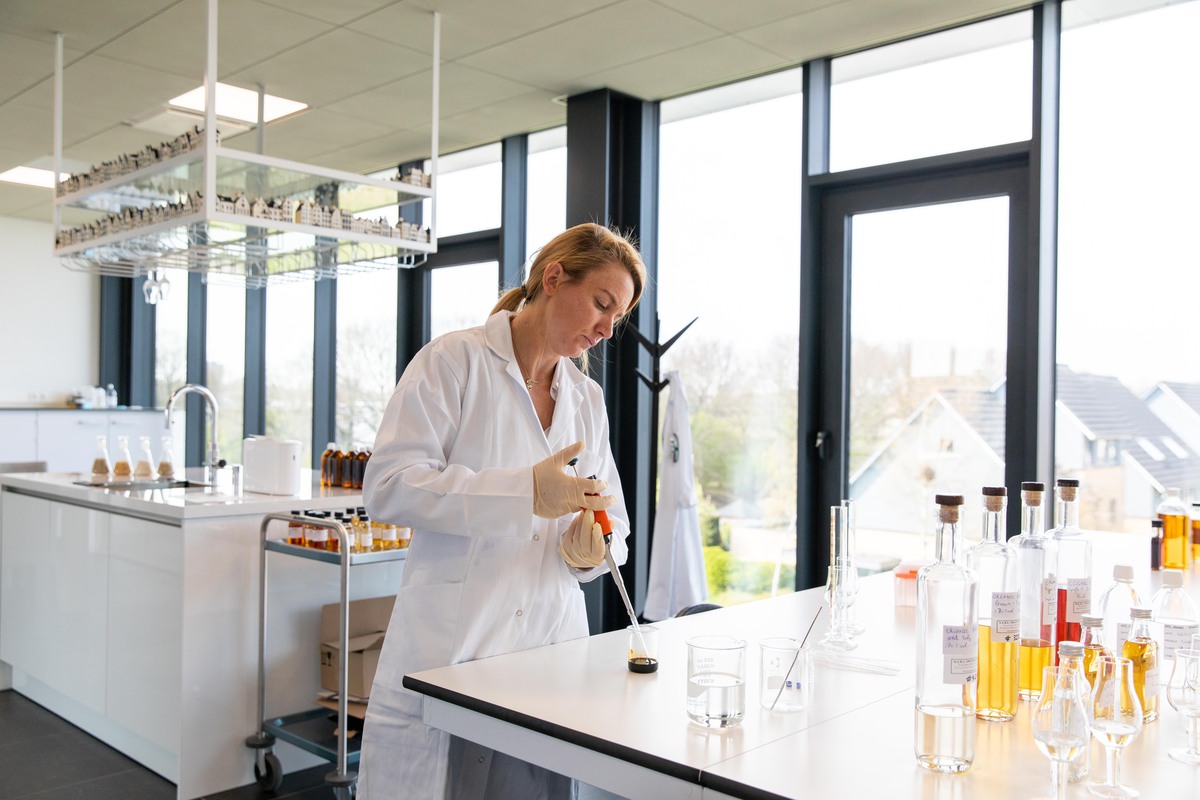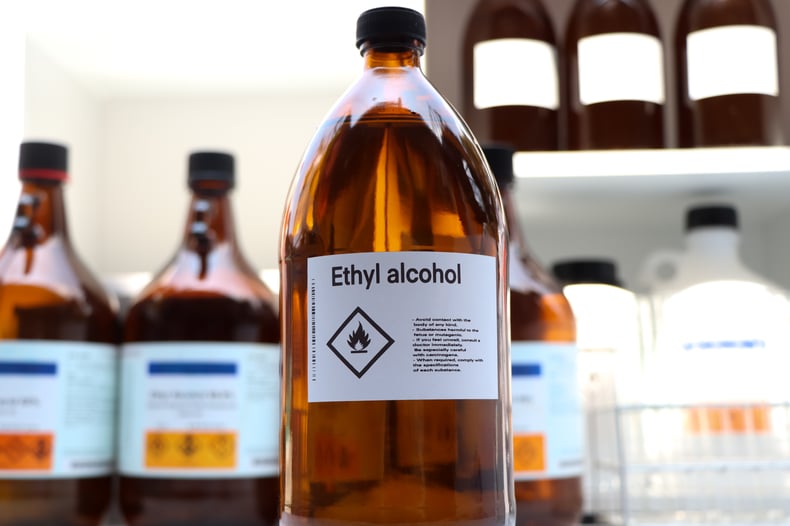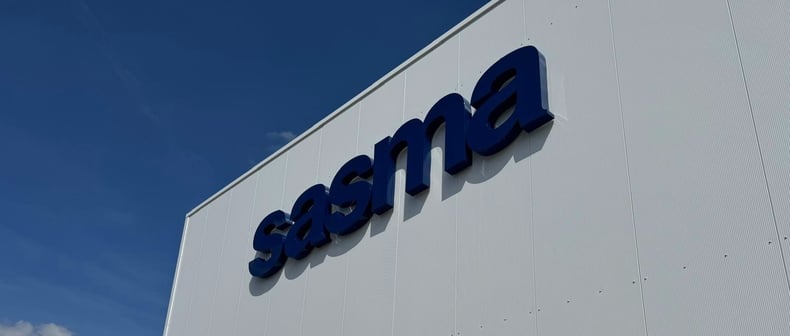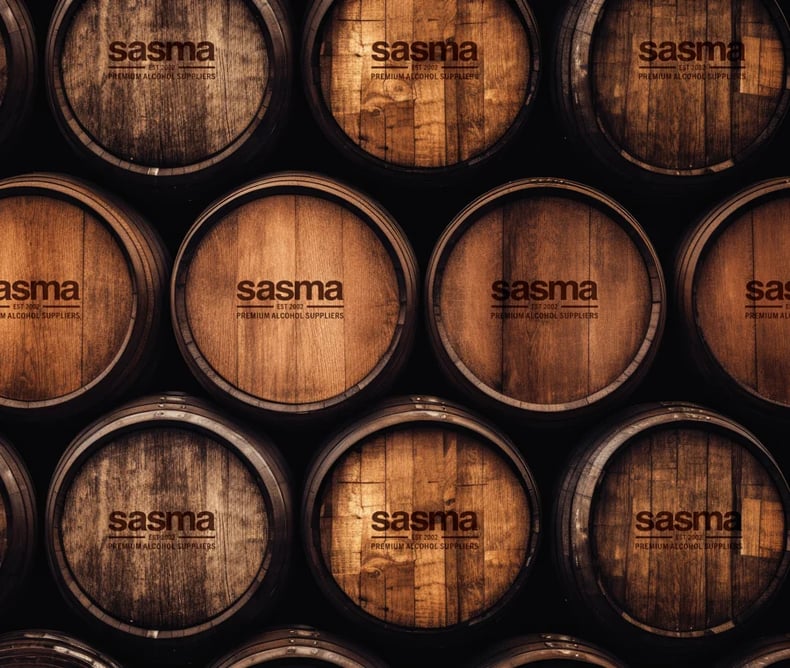
The Sasma Standard: A Commitment To Quality & Consistency
The Sasma Standard: A Commitment To Quality & Consistency
Quality is more than just a standard we adhere to. As a leading global supplier of bulk spirits and alcohol, our commitment to excellence extends from sourcing and production to documentation and delivery. Every shipment reflects our promise of consistency and safety. This is backed by years of lab testing, certification compliance, and trusted partnerships.
Learn more about what quality means at Sasma and how our end-to-end process ensures reliability across the supply chain.
A Look Inside Sasma’s Quality Assurance Process: An interview with Sasma’s Quality Manager Florien Vercouteren
1. When it comes to bulk spirits and neutral alcohol, how do you define quality?
“At Sasma, quality is embedded in every aspect of our business. It begins with the very first contact and continues all the way through to final delivery. Our customers and suppliers are our top priority, which is why we provide professional and expert advice from the very first interaction. Throughout our partnerships, we are committed to maintaining relationships that meet the expectations of both sides, where business needs are being met.”
2. How does Sasma ensure consistent product quality across global sourcing and supply chains?
“Every incoming batch is evaluated based on a certificate of analysis and verified through internal testing in our own laboratory. This ensures product safety, consistency, and reliability.
Moreover, safety and responsibility are integral to our operations. When selecting suppliers, we carefully consider not only product quality but also safe production methods, transport, storage, packaging, and working conditions. At Sasma, quality is not a single step…it’s a continuous commitment that connects every part of our value chain.”
What certifications and compliance standards are most important in today’s bulk alcohol market?
“Because we source our products worldwide, we encounter many different interpretations of what quality means. For Sasma, standardized norms serve as our starting point, but we also recognize that smaller distilleries or local producers may not always meet every global standard.
Through well-defined criteria–including safety, product quality, capacity, and ethical responsibility–we carefully select only those suppliers we fully trust to meet our expectations. This approach allows us to maintain consistent quality while respecting the diversity of our partners and production environments.”
3. How do you evaluate and approve new suppliers of ENA or bulk spirits?
“For bulk alcohol suppliers, we issue an annual satisfactory report based on trustworthiness, compliance, price, and flexibility. Grades lower than "x" will be moved to NON-ACTIVE, or we will seek a solution with that supplier to continue our collaboration. For new suppliers, we apply fixed criteria that align with all key elements of our food safety system. These criteria serve as a consistent framework for evaluating suppliers and products.”
4. What role does traceability play in your quality process?
“Traceability is one of the most important aspects since we serve a lot of customers in the food business. For the past three years, we have conducted a full traceability test and a recall test, and both complete these in less than an hour.”
5. How do agricultural changes like grain, sugar, or agave harvest conditions impact quality control?
“Because we source globally, Sasma has the flexibility to remain independent of local crop conditions. Should a region experience a poor harvest, for example, an unusually dry summer affecting wheat growth, that shortage does not limit us. Our international network enables us to source ethanol from regions with favorable harvest conditions, ensuring a stable supply.
6. What are the most common quality challenges in bulk alcohol supply, and how does Sasma address them?
“First and foremost, for all shipments, proper documentation, security seals, and suitable packaging and/or modes of transport are standard procedure at Sasma.
A large part of our business involves direct shipments from manufacturer to customer (drop shipments). The operational steps are limited, yet the most challenging aspect is that loading or discharging often takes place outside our direct supervision.
In some cases, we address this by arranging for a local agent to be present during the loading or unloading process. Acting on behalf of Sasma, this representative ensures that all procedures are followed according to regulations, that goods are packed correctly, and that shipments are dispatched on time.
In situations where this is not possible, we rely on trusted partners with proven track records of compliance and transparency, supported by detailed documentation, photo reports, and third-party certifications to verify that every step meets our quality and safety standards.”
7. How does your team handle testing, documentation, and audits to meet customer requirements?
“We maintain a fully integrated quality management system designed to meet and exceed customer requirements.
All incoming, in-transit, and outgoing products are verified through certificates of analysis and internal laboratory testing. Our in-house lab performs identity, purity, and specification checks to confirm compliance with both regulatory and customer-specific standards. For food-grade alcohol and organic ethanol, we also apply sensory and microbiological verification when relevant.
Every shipment and product batch is accompanied by complete documentation, including the certificate of analysis, safety data sheet, and relevant transport and quality certificates. All records are stored digitally within our ERP system, ensuring full traceability from origin to final delivery. Document templates and procedures follow food safety system requirements under FSSC 22000.
We welcome both internal and external audits. Our quality team performs scheduled internal audits to ensure process consistency and regulatory compliance. Customer and certification audits are supported with complete transparency. Findings are analyzed, and corrective actions are implemented promptly through our continuous improvement program.”
8. Why is quality assurance especially critical for customers in food, beverage, and pharmaceutical applications?
“End products are consumed or applied directly by people. This requires the safest and most secure way of working, as our health is of utmost importance. In these industries, purity, consistency, and tracing are non-negotiable. Luckily for us, alcohol must follow strict chemical specifications, but microbiology does not apply. Alcohol is a disinfectant (as you know from COVID-19).”
9. Looking ahead, what trends do you see shaping quality standards in the global spirits and ethanol market?
“Like the rest of the world, we at Sasma are embracing digitalization, and AI is becoming an important part of that journey. Quality control is a great example: automated reminders, templates, and structured workflows are only the beginning.
We foresee a future with far less paperwork and much greater efficiency. The quality world, which can sometimes feel overly administrative, is ready for this change. With the help of digital and AI tools, we aim to make quality management not only more reliable but also faster, smarter, and easier to maintain.
Quality Bulk Spirits & Alcohol You Can Trust
Quality is more than a process; it’s our promise to you. Whether you’re looking to add to your portfolio or streamline production, our quality and logistics teams ensure every shipment meets the highest standards.
Do you have questions about our products? Contact our team at sales@sasmabv.com or visit www.sasmabv.com to learn more about our global sourcing and quality management systems.
Related articles
-

Meet Sasma’s New Warehouse Manager in Halsteren
Mark shares his background, his vision for safe & efficient operations, and how Halsteren will serve as a natural...Read more -

Is Ethyl Alcohol Halal?
Ethyl alcohol is widely used acrossmany supply chains, where it primarily serves as a functional ingredient rather than...Read more -

Sasma 2025 Year in Review
As we close out Q3, we share the key developments shaping our industry: global trade agreements & tariff shifts,...Read more -

Sasma Halsteren Facility On Track To Open April 2026
Sasma’s new Halsteren warehouse is progressing as planned, marking a significant investment in our long-term...Read more -

Exploring Bulk Whisky with Sasma: Quality, Customization, & Expertise
Understanding the factors shaping bulk alcohol pricing is crucial. Learn how raw materials, production processes, and...Read more -
.jpg?width=790&height=980&name=sasma-apr25-websize-366%20(1).jpg)
What Is A CAS Number and Why Is It Important?
Quality at Sasma more than a standard we adhere to. we're suppliers of bulk spirits & alcohol, from sourcing and...Read more
